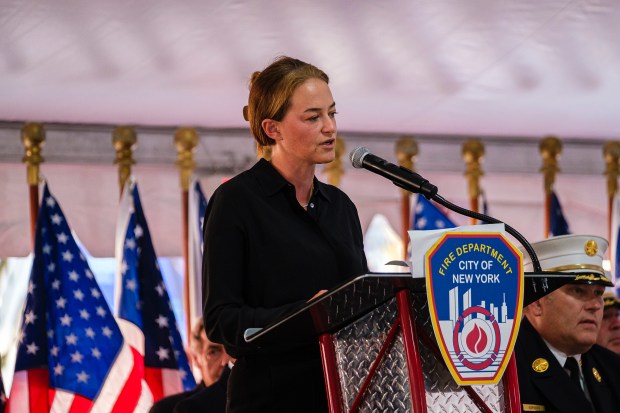Cardiovascular
FDNY wants feds to add certain autoimmune, cardiovascular diseases to 9/11 Ground Zero compensation list
The FDNY wants the feds to add two more health conditions to its growing list of 9/11-related illnesses, the Daily News has learned.
First responders and survivors of the Sept. 11, 2001 terror attacks suffering from certain autoimmune diseases, including lupus, psoriatic arthritis and rheumatoid arthritis, as well as cardiovascular diseases should be compensated by the federal government, said Fire Department doctor David Prezant.
In two petitions to the World Trade Center Health Program, Prezant said those conditions may be directly linked to survivors’ exposure to toxic fumes that hung above Ground Zero for weeks after the terror attacks.
Studies by the FDNY and the World Trade Center Clinical Centers of Excellence — clinics that deal with 9/11 illness sufferers — showed a direct link between these conditions and exposure to the toxic dust and smoke that swirled over lower Manhattan after the terror attacks, Prezant claims.
If the Fire Department’s petitions succeed, survivors suffering from the illnesses named in them will receive full coverage from the World Trade Center Health Program for past and future medical treatments. They would also be able to receive payouts from the 9/11 Victims Compensation Fund.
“Our petition is based on evidence from four of five studies that demonstrate a statistically significant association between WTC exposure and new-onset rheumatologic systemic autoimmune disease in responders and survivors,” Prezant wrote in his petition to add autoimmune diseases.
Autoimmune diseases often confuse the body’s natural defense system, causing it to attack normal cells. Symptoms usually include severe joint inflammation and pain.
More than 550 people enrolled in the World Trade Center Health Program suffer from rheumatologic systemic autoimmune diseases that can be traced to their time at Ground Zero, Prezant said. That tally includes about 80 retired FDNY members.
Doctors were surprised to learn so many first responders were suffering from these ailments since “in the general population, rheumatologic systemic autoimmune diseases occur more often in females,” Prezant wrote.
“This makes it even more remarkable that in predominantly male WTC (populations) an increased incidence of rheumatologic systemic autoimmune diseases was found.”
A stunning number of 9/11 first responders and survivors have also suffered congestive heart failure, arrhythmia, strokes and other cardiovascular diseases, which led doctors to suspect a Ground Zero correlation.
The risk of cardiovascular disease depended on when one arrived at the World Trade Center site, doctors found.
“[T]he risk for cardiovascular diseases was higher in those arriving on day one as compared to arriving later,” Prezant wrote. “Members arriving on 9/11 had significantly higher risk for self-reported cardiovascular disease than those who arrived on 9/12 or later.
“We strongly believe that the literature clearly demonstrates an increased risk for developing cardiovascular diseases (including stroke) in WTC responders and survivors,” he wrote.
More than 4,000 first responders and survivors enrolled in the World Trade Center Health Program “have confirmed cardiovascular diseases,” according to the studies.
As of June 30, more than 125,400 people nationwide were enrolled in the World Trade Center Health Program, agency statistics show.
These new petitions, which were sent on Sept. 3, received the full support of Fire Commissioner Laura Kavanagh, who on Wednesday attended a somber service where 43 names of active and former FDNY members who died of a 9/11 illness were added to a memorial wall.
“The promise we make to our fallen members is to never forget — and protecting those who are still with us is a part of that promise,” Kavanagh said Friday.
“FDNY members continue to get sick, and data captured by the WTC Clinical Centers of Excellence has shown that there are still more diseases threatening our members. Expanding the list of certified medical conditions accepted by the Victim Compensation Fund is the right thing to do.”
Prezant’s petitions are among the first steps in a review process to see if these ailments can be added to the list of federally recognized World Trade Center conditions.
“The program administrator will have to review their petition and determine if they have provided sufficient evidence to meet the law’s requirements,” said Benjamin Chevat, executive director of 911 Health Watch. “I know this effort is appreciated by those who are suffering from these conditions.”
The petition process could take months. A similar proposal to add cancers of the uterus to the 9/11 illness list took eight months to complete.

